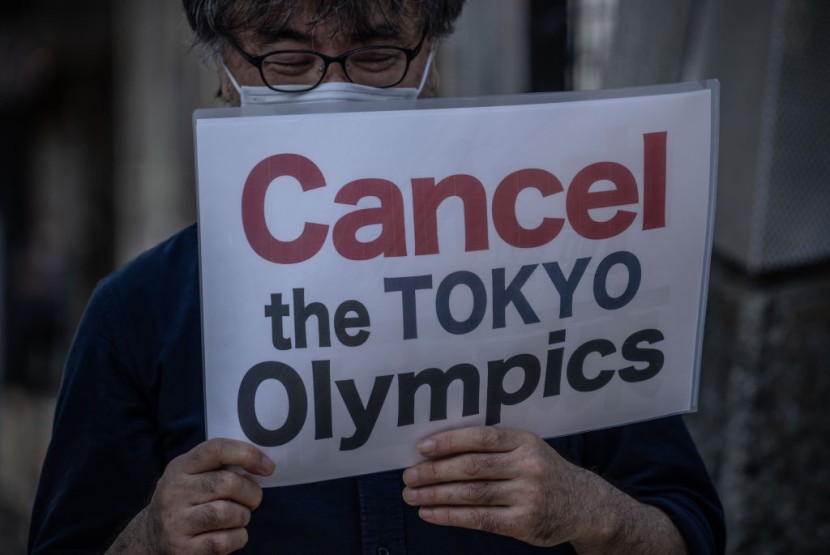
Because of an increase in coronavirus cases in Japan, which is planning to host the Olympics in just two months, US health officials and the State Department issued a travel warning on Monday. The twin warnings, however, do not ban Americans from traveling to the region.
However, they may affect travel insurance rates and influence Olympic athletes' and spectators' decisions on whether to participate in or attend the games, which are set to begin in July. There was no clear sign of how the alerts would affect potential Olympic participants.
State Department lifts travel alert from level 3 to 4
In a recent COVID-19 update, the Atlanta-based Centers for Disease Control and Prevention (CDC) advised travelers to avoid traveling to Japan. "Because of the current situation in Japan, even completely vaccinated travelers could be at risk of contracting and transmitting COVID-19 variants; thus, all travel to Japan should be avoided," AP News reported.
Following the CDC warning, the State Department sent a stronger advisory. It said in the announcement, "Do not travel to Japan due to COVID-19," raising the department's travel alert from Level 3 to Level 4, which is a reconsideration of the previous alert issued on April 21.
Despite this, the US Olympic and Paralympic Committee believe that American athletes will still be able to participate successfully in the Tokyo Games.
Japan sent military doctors and nurses to send shots to senior citizens in two significant cities earlier Monday. At the same time, the government rushed to complete the vaccine rollout and prevent coronavirus infections in time for the Olympics. The decision was made in response to mounting demands for the games to be canceled.
After a one-year break, Japanese Prime Minister Yoshihide Suga is determined to host the Olympics in Tokyo on July 23 and has made an ambitious promise to vaccinate the country's 36 million senior citizens by the end of July. Japan has reported just over 12,000 COVID-19 deaths, which is strong by global standards but poor in Asia. Still, Tokyo and Osaka, and many other cities are under a state of emergency that will most likely be prolonged until May 31. With only a small percentage of the Japanese population vaccinated, there is concern that new variants will spread.
According to an NBC News tally, the nation has seen over 36,000 Covid-19 cases and 779 deaths in the last seven days, with almost 716,000 cases total. Japan, which has lost over 12,000 lives in total, is now in an emergency as it plans to host 11,000 athletes from 200 countries and territories. Travel to Japan for tourism and other short-term reasons is also prohibited, according to the State Department. Travel without a visa is also banned.
The 2021 Tokyo Games will be televised on NBC. The games will be secure, according to John Coates, vice president of the International Olympic Committee.
Read Also: Anthony Fauci Seeks Further Probe As He Is Dubious of COVID-19 Having Developed Naturally
Japanese doctors urge to cancel Olympics this summer
Hospitals in Osaka, Japan's second-largest city, are struggling to cope with a massive outbreak of coronavirus infections, with beds and ventilators running out as tired doctors warn of a "system failure" and caution against hosting the Olympics this summer. Japan's western district, home to 9 million residents, bears the brunt of the pandemic's fourth wave, accounting for a third of the country's death toll in May, despite accounting for just 7 percent of the population.
The rapid overburdening of Osaka's healthcare system highlights the difficulties of hosting a major global sporting event in less than two months, particularly given that only about half of Japan's medical staff has completed inoculations. While Japan has escaped the large-scale outbreaks that have hit other countries, the fourth pandemic wave hit Osaka prefecture hard, with 3,849 new positive tests in the week leading up to Thursday.
Per Daily Mail, this is a more than five-fold increase from the same time three months earlier. Just 14 percent of the 13,770 COVID-19 patients in the prefecture have been admitted to hospitals, leaving the rest to fend for themselves. In comparison, Tokyo's latest hospitalization figure is 37 percent. Levels of less than 25 percent, according to a government advisory panel, are a cause for considering declaring a state of emergency.
Related Article: Ivermectin To Undergo COVID-19 Drug Trial in the University of Minnesota as Online Interest Surges
@YouTube
© 2025 HNGN, All rights reserved. Do not reproduce without permission.








